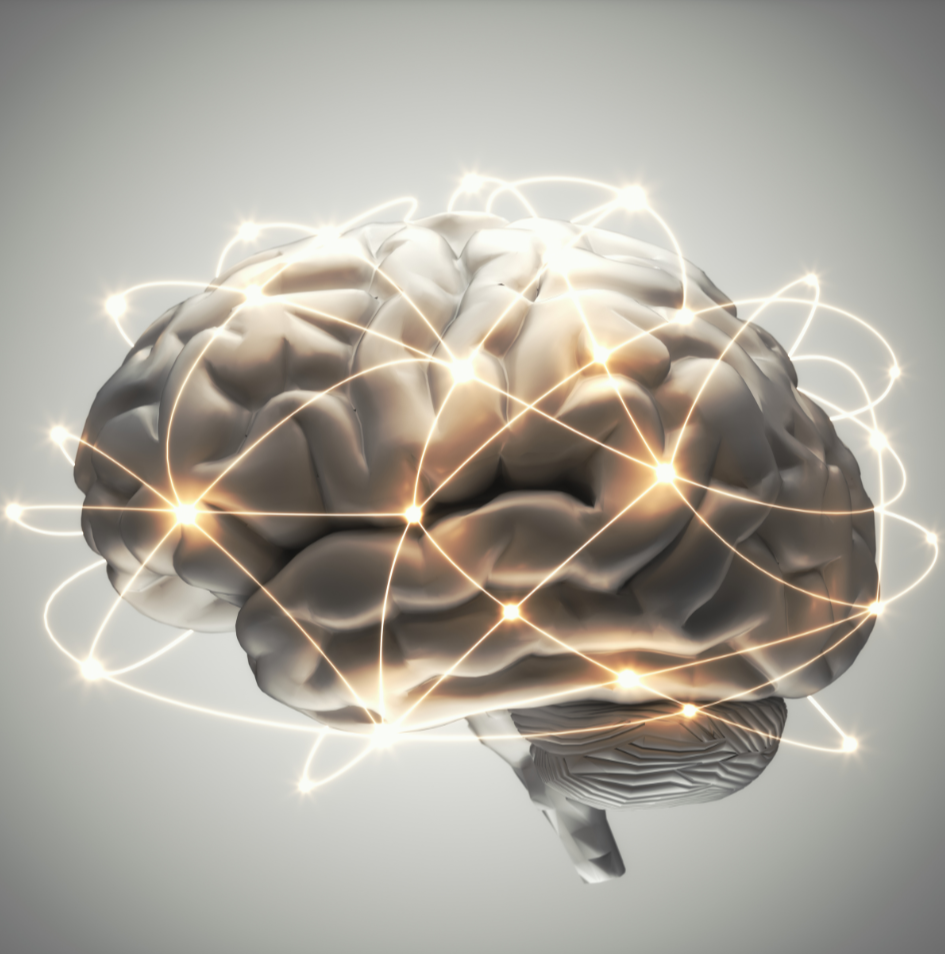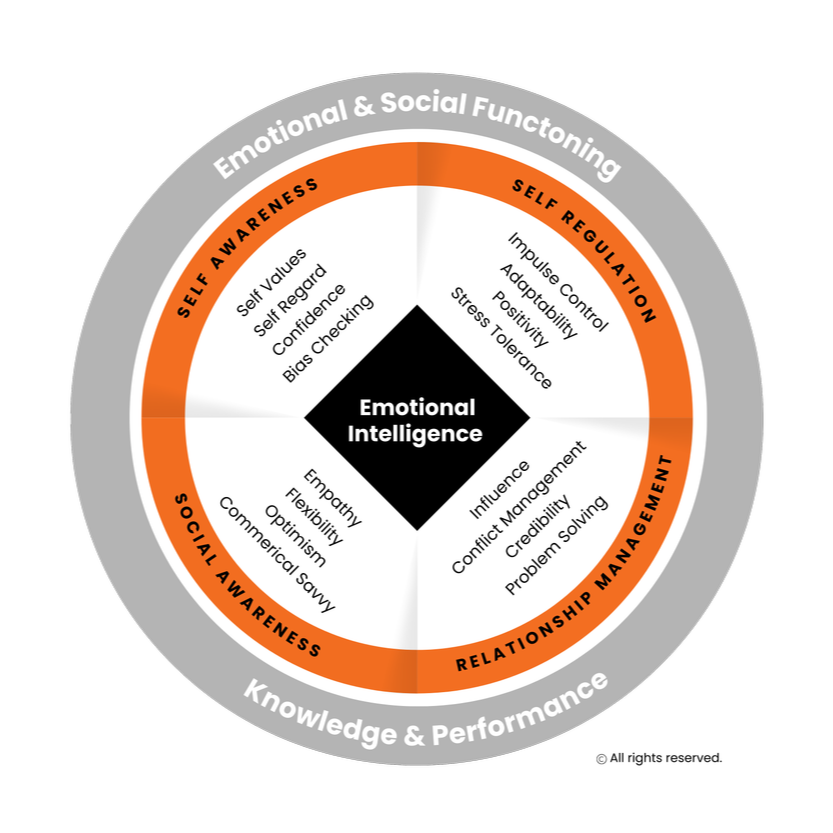Emotional Intelligence and Leadership Development
The human edge in leadership, culture and performance.
Emotionally intelligent leaders possess a combination of traits and skills that enable them to excel in interpersonal relationships and create environments that foster collaboration, trust, and personal growth, and are highly effective.
DISCOVER THE POWER OF EMOTIONAL INTELLIGENCE
Emotional intelligence in leadership is a superpower and the one thing AI can’t replace.
Emotionally intelligent leaders recognise, understand, and manage their own emotions while positively influencing those around them. They know how to listen, connect, and communicate in ways that build trust and engagement.
We help leaders harness emotional intelligence to elevate performance, strengthen the performance environment, and create a genuine competitive advantage.
THE FOUR DOMAINS OF EMOTIONAL INTELLIGENCE
Self Awareness
Self awareness is the foundation of leadership capability. It is the ability to recognise our own emotions, strengths, limitations, and the impact we have on others. Leaders with strong self awareness can identify blind spots, make deliberate choices, and role model their values. By being attuned to their tone, language, and presence, they not only manage their own impact but also create the conditions for others to perform at their best.
Self Regulation
Self-regulation is about managing emotions, particularly under pressure. The ability to hit the pause button between the immediate emotional response and the action that leaders take, enables leaders to respond rather than react in a considered and controlled manner, foster environments where conflict is handled constructively, mistakes become learning opportunities, and stress is managed in ways that prevent burnout.
Social Awareness
Social awareness is the ability to understand and empathise with others, to read the emotional currents in a team, and to be inclusive of diverse perspectives. In the workplace, social awareness helps leaders and teams to anticipate concerns, recognise early signs of disengagement, and build cultures where people feel heard and respected. These are not just “nice to haves”, these emotionally intelligent attributes are foundations of high performance and healthy culture where people stay and thrive.
Relationship Management
Relationship management is the skill of building and maintaining effective, positive connections. It includes influence, collaboration, coaching, mentoring and the ability to turn toxic conflict into healthy conflict. High performing organisations know that trust, to the level of psychological safety, is their currency. Leaders skilled in relationship management create environments where feedback and challenge is welcomed, innovation is encouraged, and employees feel safe to speak up.
EMOTIONAL INTELLIGENCE AS A COMPETITIVE ADVANTAGE
When emotional intelligence is embedded in leadership thinking and behaviour, it creates an advantage that competitors cannot easily replicate. It shows up in measurable commercial outcomes, such as:
Stronger customer relationships – clients and stakeholders respond to authenticity, trust, and empathy.
Higher employee retention – emotionally intelligent cultures reduce turnover costs by keeping top talent engaged and committed.
Improved collaboration and innovation – teams that manage conflict constructively and value diverse perspectives solve problems faster and adapt to change.
Better decision making – leaders who balance rational analysis with emotional insight make choices that are both strategic and sustainable.
Sustained performance – organisations with emotionally intelligent leadership see higher productivity, resilience under pressure, and long term financial gains.
In today’s environment, where finding new ways to compete is critical, emotional intelligence is the differentiator that sustains advantage. It elevates leadership impact which in turn strengthens culture, and enables organisations to deliver results strategically, competitively, through people.
And it’s the one thing AI can’t replace!
Click here to review the essential emotional intelligence assessment tools. We have trusted Human Synergistics for more than 20 years.
We are Australia’s leading experts in
emotional intelligence
for leadership, culture and performance.
We partner with companies and leaders to leverage emotional intelligence in shaping strategy, elevating culture, and driving competitive advantage.
Explore our solutions by clicking an image below.
The test of a truly great leader is the number of successful leaders they have developed.
We are proven leaders and culture experts sharing through lived experience.






